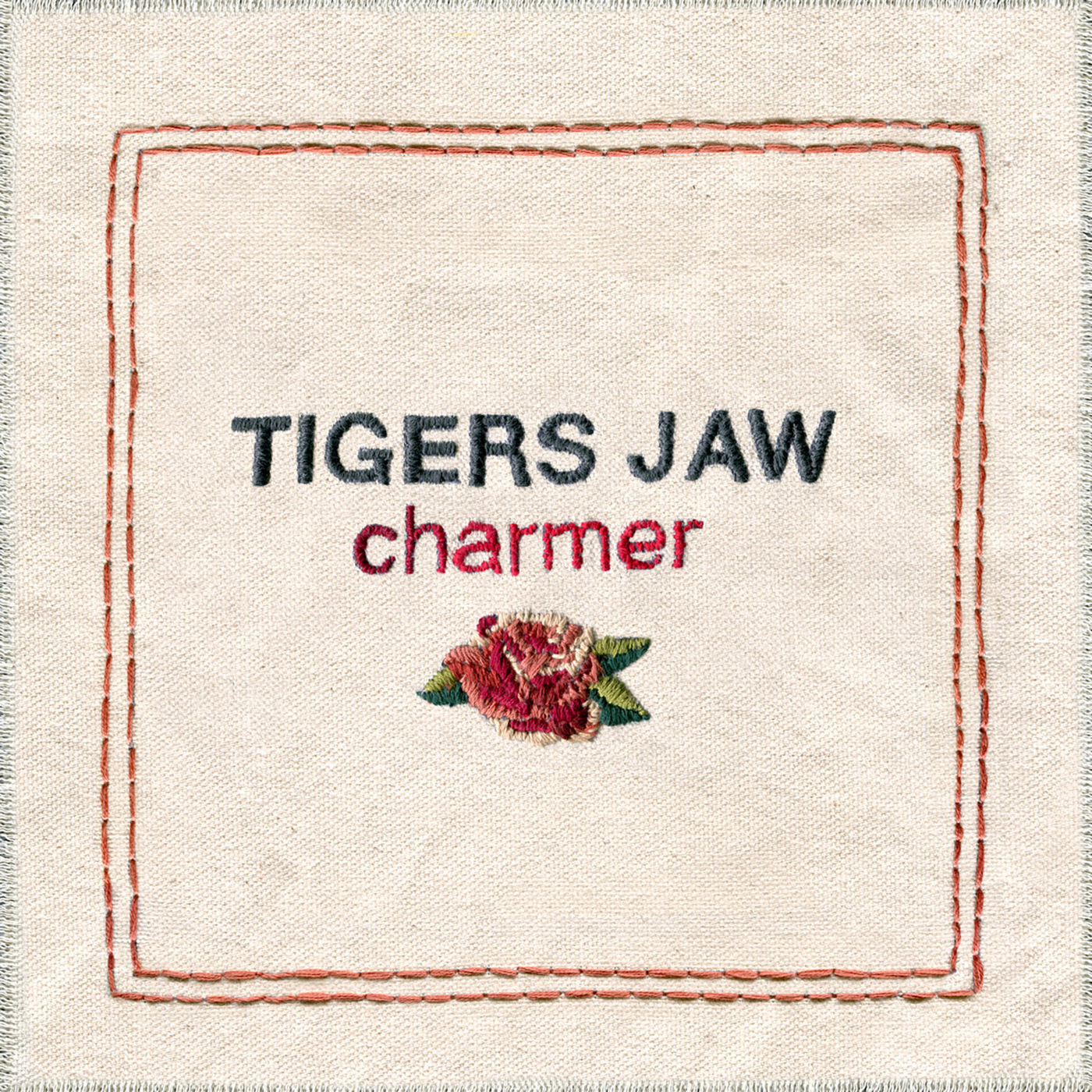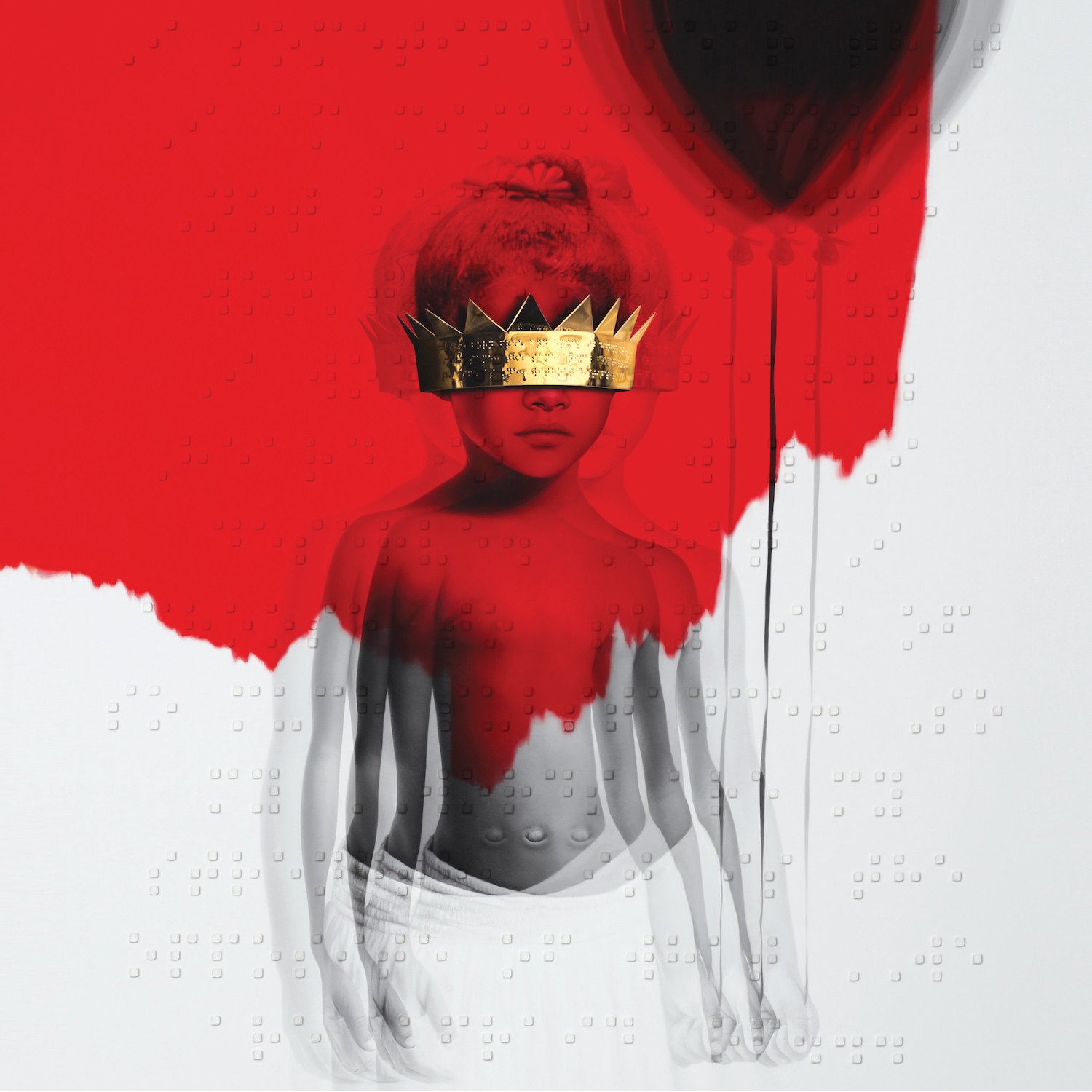- Run For Cover
- 2014
In 2013, Tigers Jaw announced on Tumblr that three of the five members were leaving. It would only be Brianna Collins and Ben Walsh from then on, while Adam McIlwee, Dennis Mishko, and Pat Brier were exiting. But they already had the studio time booked and they’d been writing together. "We had all these songs and why not do it?" Collins told New Noise. So the quintet recorded one last time together. Some of the lyrics weren’t finished, and it would take the album over a year to finally come out, but nonetheless, Charmer came to life.
Tigers Jaw formed in 2005 in Scranton, Pennsylvania. They named themselves after a lyric from a song by the Microphones, whose influence can be heard on their lo-fi 2006 debut Belongs To The Dead, an album (rightfully) ignored in their discography, the work of an undeveloped band of high schoolers just starting out. They quickly figured things out. Their second album, 2008's self-titled, remains a revered emo revival classic, a rambunctious, catchy, intense snapshot of youth. Perhaps you've seen its cover, which famously (notoriously?) depicts an indulgently cheesy pizza. In 2010, the similarly raucous Two Worlds arrived, once again proving their knack for infectious, loud, neurotic songs.
The greatness of Tigers Jaw and Two Worlds cannot be overstated. However, it may not strike a casual listener as much as it would a Tigers Jaw concertgoer. The songs from those albums continued to stand out in the band's live show for years after their release. In 2017, I took a 45-minute train into Manhattan after telling my mom I was going to a friend's house. I walked into Webster Hall and said I was on guestlist; I was 16 and a part of Fueled By Ramen’s street team, and Tigers Jaw’s Spin had just come out on the now-defunct FBR imprint Black Cement Records.
Though I was alone, I immersed myself in the pit and felt close to everyone around me who was screaming along, pushing each other, and smiling. I headbanged so feverishly to Two World’s rapid-fire "Test Pattern" that after the concert, whenever I listened to the song, a surge of that same invigoration shot through me like I was back in the ardent crowd. Everyone shouting the laconic lines to Tigers Jaw’s "Chemicals" in unison was a startling catharsis that also enhanced the experience of the recorded song. I was so impassioned that night that my glasses flew off my face and were never to be seen again, but I didn't mind that much because my ability to see wasn't that urgent. As long as I could hear the music and feel the adrenaline in my body, I was euphoric. I was so inspired that the next day I started a WordPress blog called Danielle Goes To The Gig and wrote about the show, realizing that my love for writing and my love for music were meant to intertwine.
Charmer is a lot more contained than those two records. Fans in the audience still find ways to mosh to it, but through earbuds Charmer prioritizes sounding haunted over exploding with noise. It's more intentional and conceptual. This can probably be explained by the fact that it was their first time working with a producer. "We had always tried to polish off the songs ourselves," Walsh casually revealed to Vice. That producer was Will Yip, whose oeuvre includes a good chunk of the LPs in the emo canon. While Tigers Jaw are masters of shredding, this restrained approach on Charmer is a change that works, especially as three members were about to depart.
After this record, Adam McIlwee would go on to become a cult-followed emo rapper by the name of Wicca Phase Springs Eternal. He joined the GothBoiClique, known for being the home of Lil Peep before he passed in 2017 at age 21. McIlwee's apathetic deadpan and misanthropic lyrics on Charmer show that his path to becoming an emo rap icon makes sense. It was previewed on previous Tigers Jaw albums, but it's the centerpiece of Charmer, not drowned out by uproarious instrumentation. His voice is immediately unsettling; his distinct, deep monotone on opener "Cool" makes the hook powerful: "It's a cruel world/ But it's cool." It has the detached hedonism of an emo rap song as he sings lines like "And all the girls are so champagne," a sentiment you wouldn’t find in other emo songs. But it’s compelling; he’s convincing, and the guitars are grungy, forceful, and gloomy.
McIlwee is particularly sinister on the bewitching "Soft Spoken." His words are mumbled, almost slurred, and the lyrics are even stranger: "It takes one to love you/ Someone dumb enough to buy/ Tie my hands in plastic bags/ Choke me on the ride." Charmer goes back and forth between songs steered by Collins and Walsh and songs steered by McIlwee. Instead of dividing the album, this dynamic gives Charmer a sense of engaging wholeness. "Distress Signal" centers on Collins and Walsh's harmonies, a reprieve after the McIlwee-driven "Soft Spoken." "Nervous Kids" is an only slightly off-kilter anthem for shy teenagers in a Smiths kind of way (Tigers Jaw do have a song called "My Friend Morrissey”). It's especially engrossing as Walsh sings, "Your problems look so big from the ground/ Raise them up for all to see/ Shout them out from top of Twin Peaks."
Though the vivacious guitar work that imbued Tigers Jaw and Two Worlds with color is toned down, there are plenty of volcanic moments on Charmer. I remember Tigers Jaw shows where people were losing their shit to the unrelenting "Frame You," which kicks off with an intro of bombastic riffs and only gets rowdier from there only in a more measured fashion than their past material.
"Slow Come On" also begins with an eruptive, fuzzy wall of sound. There’s a sense of seduction that floats through a lot of McIlwee’s verses on Charmer and peaks on "Slow Come On," but it’s only ever dead-end desire enmeshed with his numbness and destruction, a kind of vague sadomasochism, especially when he asks, "Does it turn you on?/ To feel the knife roll over slowly?"
Lust is difficult to pull off in emo songs — Pedro The Lion’s steamy 2002 song "Rapture" should serve as the blueprint (I would be missing an opportunity if I didn't call it a banger, which it really is) — but Charmer grapples with sex in a way that’s so morbid that it's magnetic. "Slow Come On" ends with him saying, "Why am I so cruel?/ Why am I so mean?" Obviously, though, he can't care enough to lift his voice at the end of the sentences to make them sound like questions; he's too unconcerned to genuinely wonder why he's as stolid as he is. Yet his passiveness, which often crosses the line into cruelty, is inexplicably alluring.
"What Would You Do," the finale, is the eeriest moment on the album as McIlwee says things like, "Play with your hair and then stop/ Like you were the world's ugliest person that nobody wants to pick up." Its an uninviting, seething goodbye, and the beginning of McIlwee's career as an emo rapper. I didn't closely follow his career as it moved in that direction, but I like the song "Crushed" from his 2019 album Suffer On a lot. McIlwee was also an early supporter and collaborator of the rising pop enigma Ethel Cain. In 2020, McIlwee, Brier, and Mishko launched a project called Pay For Pain; their debut EP Pain almost felt like the extended universe of Charmer, especially the entrancing “You Take Command Of My Heart.”
Meanwhile, Tigers Jaw proved to be fine as a duo with the beloved 2017's Spin. Together, Collins and Walsh lack the menacing edge that McIlwee provided, but they still manage to make engaging, poignant music without it. Their melodies, harmonies, lyricism, and instrumentation are as impressive as ever. 2021’s I Won’t Care How You Remember Me possessed some enthralling guitar work that felt like a callback to their earlier years, as well as some delightful flashes of shoegaze like on "Lemon Mouth." Collins and Walsh clearly have the drive and chemistry to keep Tigers Jaw alive and thriving, and it’s awesome. It’s also surprising, considering they come from the circle of Pennsylvania bands who often break up: Title Fight (RIP), Balance And Composure (who just announced their first album in eight years last month), and Superheaven (who are, I think, in the midst of a comeback?). All this time, Tigers Jaw have never left.
Charmer is of its time. It was a golden era for Run For Cover. Modern Baseball’s You're Gonna Miss It All came out a few months prior. It was the year after the release of Superheaven’s Jar and Citizen's Youth, and a year before the release of Turnover's Peripheral Vision. If you’ve read this far, you probably know how crazy that is. Charmer received a positive Pitchfork review from (you guessed it) Ian Cohen but otherwise didn’t get much press (even from Stereogum!). It doesn’t really matter, though. The beautifully embroidered artwork — stitched by Collins herself — is iconic to a fervent subculture; edits of it go viral on Tumblr. The excitement for Tigers Jaw is not about critics raving about them online; it’s about fans surfing over people’s heads at gigs, screaming along, headbanging, breaking their glasses, then starting a music blog.
Is Charmer the best Tigers Jaw album? I don’t know. It's a wonderful moment in a catalog that's full of those. Diehards will tell you that the best Tigers Jaw material isn't even on the albums, but on the other stuff: their evocative 2009 EP Spirit Desire, their fiery 2010 split with Balance And Composure, their scrappy 2013 split with Tiny Empires. There's a lot of Tigers Jaw to love. Charmer is an interesting relic of a band that, on the brink of disassembly, choose to captivate instead of exhilarate. As usual, they struck a chord.
We rely on reader subscriptions to deliver articles like the one you're reading. Become a member and help support independent media!






